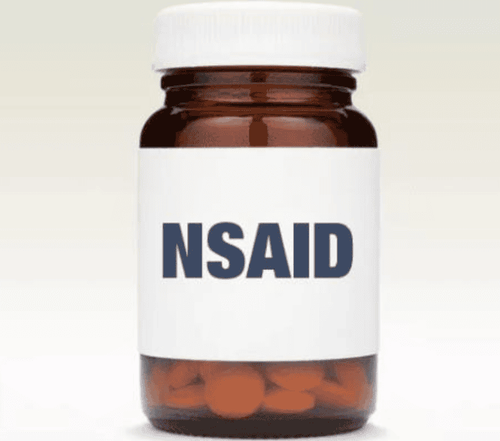This is an automatically translated article.
Ziconotide is a pain reliever that works by blocking and selectively blocking calcium channels, thereby helping to control nerve transmission at many synapses. What are the uses of ziconotide?
1. What does ziconotide do?
The drug ziconotide belongs to the new group of non-opioid anti-inflammatory drugs that relieve pain. Ziconotide works by blocking and selectively blocking calcium channels, thereby helping to control neurotransmitters at many synapses. The analgesic effect of ziconotide may be due to its ability to interrupt pain signaling at the level of the spinal cord. This is a peptide drug approved for the treatment of severe chronic pain in patients with intradermal administration only. Importantly, prolonged use of ziconotide does not lead to the development of addiction and tolerance.
2. How to take ziconotide
Ziconotide is made in the form of a solution for injection, so it is given intravenously under the direct supervision of a healthcare professional. The dose of the drug will depend on the patient's health status and response ability. For children, the dose will be based on the child's weight.
3. Undesirable effects when using the drug ziconotide
Some unwanted effects that can occur when using ziconotide include:
Amnesia Loss of balance Confusion Dementia Dementia Difficulty urinating, painful urination, dark urine,... Tremor in hands, feet, hands, feet Stuttering Suicidal thoughts Uncontrollable facial movements Aggressive Convulsions Dizziness Drowsiness Fast heartbeat Stiff neck or back Difficulty concentrating Loss of appetite Unusual bleeding or bruising usually Rapid mood changes Some severe allergic reactions are accompanied by signs such as severe dizziness, difficulty breathing, swelling of the face, throat and tongue, rash or itching, etc. In this case, the patient or family member should immediately notify the medical staff for immediate treatment.
4. Some notes when using the drug ziconotide
Some notes when using ziconotide include:
Inform your doctor about any history of hypersensitivity, allergy to ziconotide or any other allergies. Ziconotide may contain ingredients that don't work and could cause an allergic reaction or other serious problems. Report any medications you are taking including prescription drugs, over-the-counter medicines, herbs and supplements, foods, preservatives or dyes. Inform a medical history, especially bleeding, infections, mental disorders, spinal canal blockages, depression, etc. Ziconotide can cause a person to have seizures, be irritable or have a seizure. other abnormal behavior such as suicidal thoughts, depression. Therefore, patients need special care during treatment. Tell your doctor if you have any signs of meningitis such as drowsiness, fever, confusion, headache, nausea, stiff neck, convulsions, etc. Ziconotide can make you sick. drowsiness, dizziness, disorientation, less alertness than usual. Therefore, you should not be active or do things that require alertness after taking the drug. Ziconotide potentiates the effects of alcohol and other CNS depressants such as antihistamines, allergy medicines, cold medicines, tranquilizers, sleeping pills, muscle relaxants, anticonvulsants, anesthetics, painkillers,... Do not increase or decrease the dose arbitrarily compared to the treatment regimen. Using an overdose of ziconotide can cause serious symptoms such as nausea, vomiting, abdominal pain, weakness, etc. For pregnant and lactating women, there are currently no adequate studies. to determine the infant risk when using ziconotide. Therefore, discuss the risks and benefits of the drug with your doctor. For the elderly, studies performed to date have not been sufficient to demonstrate geriatric-specific problems that would limit the usefulness of ziconotide injection. However, elderly patients are more likely to have age-related confusion, liver, kidney or heart problems.
5. Drug interactions
Drug interactions may reduce the effect of ziconotide, or increase the effect of unwanted effects. Certain medications should not be used around the time of ziconotide treatment. However, in some other cases, two different drugs can be used together even if they can interact. In these cases the doctor needs to change the dosage or take other precautions. Therefore, let your doctor know what medications and supplements you are taking.
6. How to store ziconotide
Some drug storage conditions include:
Store at room temperature Avoid light Avoid humid places. Do not store ziconotide in a humid place or in the freezer. Because each medicine will have a different storage method, please read the instructions for use and storage carefully. Also, keep ziconotide out of the reach of children and family pets. When the medicine has expired or has been damaged and cannot be used anymore, dispose of the medicine according to the correct procedure. Do not arbitrarily dispose of ziconotide into an environment such as a plumbing or toilet unless requested to do so. Consult your waste disposal company or pharmacist for more information on how to safely dispose of ziconotide to help protect the environment.
In summary, ziconotide belongs to the new class of non-opioid analgesic anti-inflammatory drugs with analgesic effect. Ziconotide works by blocking and selectively blocking calcium channels, thereby helping to control neurotransmitters at many synapses. However, ziconotide can cause some unwanted effects and drug interactions, so tell your doctor what medicines you are taking to reduce the risk of unwanted effects and at the same time increase your chances of getting worse. effective for treatment.
Follow Vinmec International General Hospital website to get more health, nutrition and beauty information to protect the health of yourself and your loved ones in your family.
Please dial HOTLINE for more information or register for an appointment HERE. Download MyVinmec app to make appointments faster and to manage your bookings easily.













